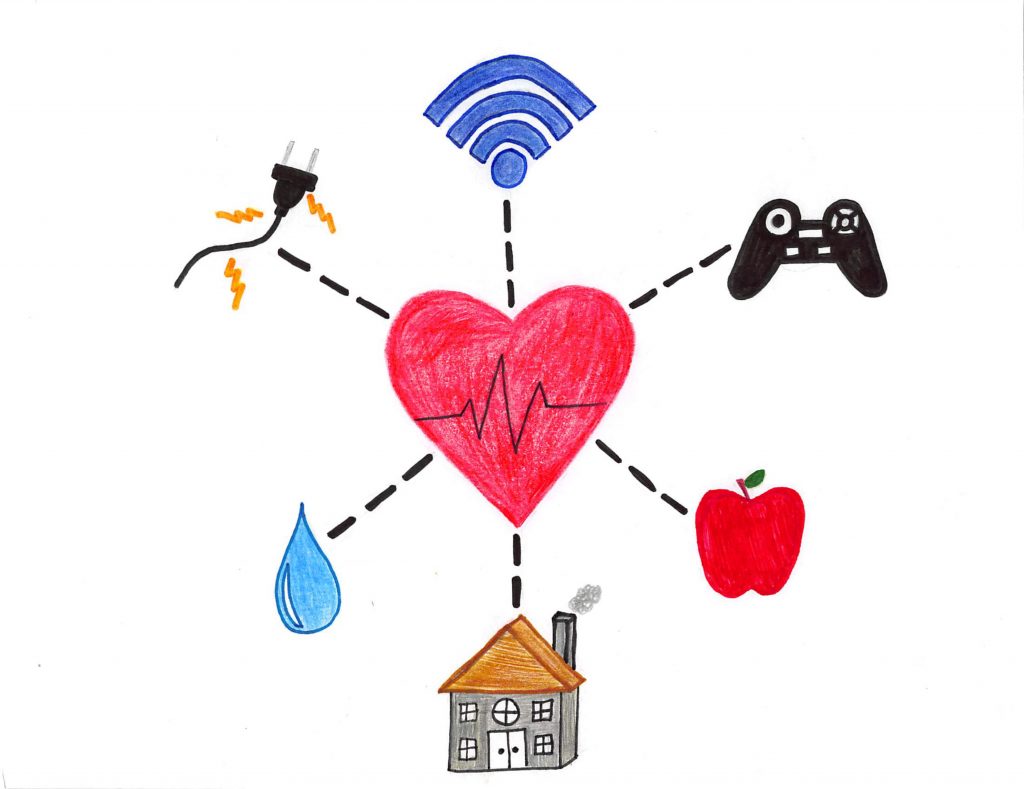Last winter, Ridgewood endured a severe wind storm which resulted in the power outages of a majority of the residential area as well as the high school. The following day, RHS students and teachers routinely came to school, except there was one major inconvenience: power had still not been restored in the entirety of the school nor the WiFi, forcing teachers to abruptly adjust their lesson plans for the day to these circumstances.
It was odd coming into school and not being told to open up Google Classroom for the assignment that day or take notes from a PowerPoint presentation. Even the small things, like having to use the manual pencil sharpeners drilled to the walls, which have been untouched for years, reading a book in the Learning Commons to pass the time during a free period, or using a textbook to study for a quiz the next day – it all demonstrated how much technology has transformed student life at RHS. Although the school day was shortened, the simplicity of being at school without having to use my chromebook or take notes from a PowerPoint was satisfying. Seeing students talk and laugh with each other about how ridiculous it was that half the school was without power and their phones and social media lives not even being a second thought in their minds was reassuring. Being in school and having to resort to traditional ways of student life was like being in a time capsule in an era where computers weren’t even a thought yet.
Our dependence on technology in school is undeniable. As we are about to enter a new decade in three months, I think it is safe to say that in this day and age our school would not be able to sustain itself for a week without the use of technology unless major changes were implemented into the school structure from the beginning of the year. RHS was not even able to carry itself through an entire school day when it lost power this past winter because of its inability to provide lunches and its interference with teachers’ lesson plans. Despite all this, the question of technology and its impact on student life shouldn’t be analyzed from a view focusing on how dependent we’ve become on it, but rather how much it has benefited and revolutionized the high school experience.
I am an advocate for the utilization of technology in classrooms and I do not think our dependence on it is harmful. We are able to access any kind of information at the tip of a finger and interact with classmates and teachers in ways that were not possible before the distribution of chromebooks to Ridgewood schools. Technology has made the learning experience far more efficient and simple while still adding aspects to it that were never even a thought only twenty years ago. Those who argue that we have become too dependent on technology need to realize that teaching in schools has always relied on something to substantiate students learning experience. Centuries ago it was religion, decades ago it was textbooks, and today it is technology. I remember on the second day of English in my sophomore year of high school, one of the first things we did was to debunk the textbook that many history courses at this school base their entire curriculum on and identify its lack of mentioning certain groups that played significant roles in historical events that we study heavily. We were able to do this activity because now we have perspective. Due to technology we are open to outlooks on the world beyond the textbook and are further enabled to shape the world in a more personalized lens for ourselves. Technology has progressed teaching as its wide domain or information has allowed for a more inclusive learning experience beyond the perspectives of what religion, textbook writers, and others, want us to know opposed to what we should know. Yet despite what many may think, traditional methods of teaching from decades ago is still alive and has not been stumped by technology, but has merely moved its place behind the screen.
Jade Dobson
staff writer
Graphic: Tess Cundiff

